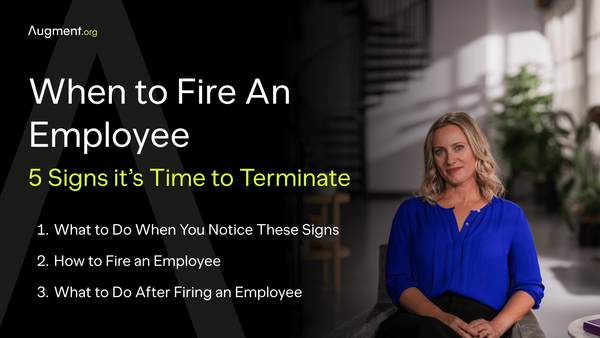How to Pay Yourself as an Entrepreneur
Optimizing owner compensation impacts business finances and taxes. Explore options from owner's draw to salary, balancing personal income with business profits while ensuring tax compliance and financial health.

What is an Owner's Draw?
An owner's draw, commonly practiced by sole proprietors and business owners of partnerships, LLCs, and S corporations, is when business owners pay themselves out of their company's profits. Instead of receiving a traditional salary, the owner 'draws' money from the business's earnings, which can vary in amount and frequency depending on the business's cash flow and the owner's needs.
This method offers flexibility and simplicity, especially for smaller businesses with fluctuating income, but it's important for owners to manage these draws carefully to maintain a healthy balance between personal finances and business stability. While owner's draws are not subject to payroll taxes, they may still impact your personal tax liability and should be recorded accurately to ensure proper reporting of personal and business finances.
What is a Salary?
A salary is a fixed, regular payment that a business owner pays themselves for their role in the business. Unlike an owner's draw, a salary is typically a set amount, decided in advance, and paid on a regular schedule, such as weekly or monthly. This method is common in structured businesses like corporations, where the owner may also be an employee of the business.
Paying yourself a salary simplifies budgeting for both personal and business expenses, as it provides a steady income. It also means regular payroll taxes are paid on your income, including social security and Medicare, which are important considerations for personal tax liability. Salaries are subject to income tax and require the business owner to manage payroll processes, including withholding and paying the appropriate taxes to the Internal Revenue Service.
Choosing to pay yourself a salary can reflect a commitment to the business's long-term growth, as it often involves more detailed financial planning and can impact cash flow. It's also seen as a more formal method of compensation and can have implications for business costs, tax savings, and business performance. When opting for a salary, it's important to ensure that the amount is reasonable and justifiable as compensation for the work performed, often referred to as "reasonable compensation." This helps maintain clear distinctions between personal and business finances and ensures compliance with various tax and business regulations.
How to Pay Yourself Based On Your Business Structure
When it comes to paying yourself as a business owner, the method you choose is largely determined by your business structure. Each structure has its own rules and implications for income, taxes, and legal responsibilities. Here's how to navigate paying yourself within common business structures:
- Sole Proprietorship: As the sole proprietor, you typically take an owner's draw. This means you withdraw funds from the business profits as needed. While this provides flexibility, remember that your business and personal income are legally the same, impacting your income taxes and tax bill.
- Partnership: Similar to sole proprietors, partners typically take draws from profits according to the partnership agreement. Each partner's draw is then reported on their personal tax returns, affecting their income taxes and self-employment taxes.
- Limited Liability Company (LLC): LLCs offer flexibility. You can choose to take an owner's draw or, if the LLC is taxed as a corporation, pay yourself a salary. The decision impacts how you pay taxes and your personal tax liability, so consider the tax implications and consult a tax professional.
- S Corporation: As an S corp owner, you can receive both a salary and dividend payments. The salary must be a reasonable compensation for the work you do, subject to payroll taxes. Dividends or distributions are typically taxed at a lower rate but don't count toward social security or Medicare.
- C Corporation: As the most formal business structure, C corp owners typically receive a salary and possibly dividends. Salaries are subject to income and payroll taxes, while dividends are taxed at the shareholder's personal tax rate. This structure requires careful tax planning and understanding of business costs.
No matter the structure, it's crucial to maintain a clear separation between your personal and business accounts to clearly track business expenses, income, and draws or salaries. Keep diligent records of all payments and consult with a tax professional to navigate the complex landscape of tax payments, estimated taxes, and tax forms, ensuring you're making the best choices for your personal finance and business performance.
How Much to Pay Yourself
Deciding how much to pay yourself as a business owner is a crucial decision that depends on several factors including your business's profits, costs, and overall performance. Here's a guideline to help you determine a reasonable salary or draw:
- Understand Your Business's Financial Health: Look at your business profits, cash flow, and regular expenses. Paying yourself too much can strain your business's finances, while paying too little might not meet your personal financial needs. Consider the business's current financial position and future projections.
- Assess Personal Needs and Expenses: Calculate your personal expenses and financial obligations. This includes everything from housing and food to debts and personal savings goals. Your compensation should ideally cover these expenses while leaving room for taxes.
- Consider the Business Structure: Your business structure affects how you can pay yourself. Sole proprietors and partners might take an owner's draw, varying in amount as needed. If you're an S corp or C corp, you'll likely pay yourself a salary, which should be a reasonable compensation for your role.
- Factor in Taxes: Remember, how you pay yourself impacts your tax obligations. Owner's draws aren't subject to withholding taxes but will affect your income tax and self-employment taxes. Salaries require withholding for income tax, social security, and Medicare. Consider how each method affects your tax bill and work with a tax professional to plan accordingly.
- Review Regularly: Your compensation might change as your business grows or faces different challenges. Regularly review your business performance, profits, and personal financial needs to adjust your pay. Keep in mind that as your business evolves, your salary or draw may also need to adapt.
- Seek Professional Advice: Because of the various tax implications and business considerations, it's wise to consult with a tax professional or financial advisor. They can provide personalized advice based on your specific situation, helping you make informed decisions about your compensation and overall business strategy.
When determining your pay, aim for a balance that supports your personal livelihood while sustaining the business's growth and stability. Your compensation is an investment in both your personal and business success, so take the time to evaluate and plan appropriately.



